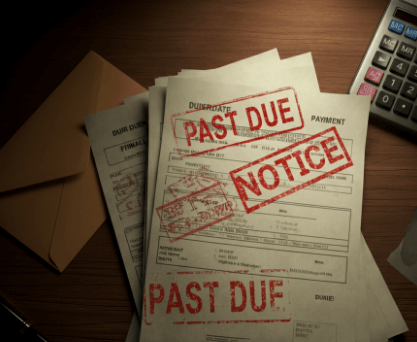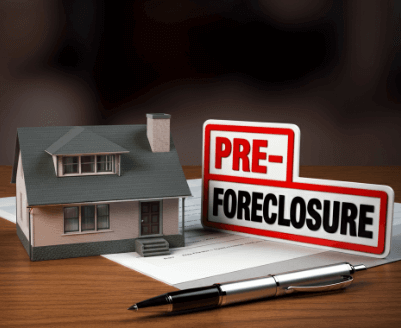Pre-foreclosure is a critical stage in the foreclosure process that affects homeowners, property sellers, buyers, and investors. Understanding pre-foreclosure in Florida can provide valuable insights into how to manage, invest in, or sell properties during this phase. This comprehensive guide will explain pre-foreclosure in Florida, offering practical advice and strategies to navigate this challenging period effectively.
Real estate investors like Steve Daria and Joleigh have successfully navigated the pre-foreclosure landscape in Florida, turning potential challenges into lucrative opportunities. Their experience highlights the importance of understanding the pre-foreclosure process, as it allows investors to identify properties with motivated sellers before they reach auction. By leveraging their knowledge, Steve and Joleigh have made informed investment decisions that benefit both themselves and homeowners in distress.
What is Pre-Foreclosure?

Pre-foreclosure is the stage in the foreclosure process that occurs when a homeowner has fallen behind on their payments and is at risk of losing their property.
This phase begins after the homeowner misses a significant number of payments, typically around 90 days, triggering the lender to issue a Notice of Default (NOD).
During pre-foreclosure, the homeowner still has the opportunity to resolve the situation before the property is repossessed or sold at auction.
This period is critical for exploring options such as negotiating with the lender, applying for loan modifications, or selling the property to avoid further foreclosure proceedings.
Key Aspects and Processes
Pre-foreclosure in Florida has several aspects:
- Notice of Default (NOD): This document is issued by the lender when a homeowner has fallen behind on mortgage payments, typically after 90 days of missed payments.
- Grace Period: During pre-foreclosure, homeowners have an opportunity to rectify their financial situation. This period, which usually lasts 90 days, provides a chance to resolve missed payments or explore alternatives such as loan changes or short sales.
- Impact on Credit: Being in pre-foreclosure negatively affects a homeowner’s credit score, making future loans and credit more difficult to obtain.
Why Does Pre-Foreclosure Occur?
Pre-foreclosure in Florida often results from various financial difficulties that prevent homeowners from maintaining their mortgage payments.
Financial Hardship
- Job Loss: Loss of employment can drastically reduce a household’s income.
- Medical Expenses: Unexpected medical bills can strain financial resources.
- Divorce: The financial effects of a divorce can affect the ability to pay the mortgage.
Economic Downturn
- Decline in Property Values: Falling property values can reduce equity and make it harder to refinance or sell the property.
- Increased Interest Rates: Higher interest rates can increase monthly mortgage payments, leading to defaults.
Poor Financial Planning
- Overborrowing: Excessive borrowing against home equity can strain finances.
- Mismanagement of Finances: Poor budgeting and financial management can lead to missed payments.
Get An Offer Today, Sell In A Matter Of Days
How to Identify a Pre-Foreclosure Property
For real estate investors and buyers, finding pre-foreclosure properties can present valuable investment opportunities.
Public Records
- County Records: Check local county records for Notices of Default.
- Pre-Foreclosure Listings: Look for properties listed under “pre-foreclosure” status in public records.
Online Databases
- Foreclosure Websites: Use specialized websites that list pre-foreclosure properties.
- Filters and Alerts: Set up alerts for new pre-foreclosure listings in Florida.
Real Estate Agents
- Specialized Agents: Partner with real estate agents who have experience with distressed properties.
- Exclusive Listings: Gain access to insider knowledge and exclusive pre-foreclosure listings.
Strategies for Property Sellers in Pre-Foreclosure
If you’re facing pre-foreclosure in Florida, it’s crucial to act quickly and strategically to mitigate potential losses.
Communicate with Your Lender
- Loan Modification: Negotiate changes to your loan terms to make payments more manageable.
- Forbearance Agreement: Request a temporary reduction or suspension of payments to gain time.
Sell Your Property
- Real Estate Agent: List your home with an agent experienced in pre-foreclosure sales.
- Short Sale: Consider a short sale if the home’s market value is less than the mortgage balance.
Seek Professional Help
- Foreclosure Attorney: Consult a lawyer specializing in foreclosure to understand your legal options.
- Financial Advisor: Work with a financial expert to explore all possible solutions.
Tips for Buyers Interested in Pre-Foreclosure Properties
Purchasing pre-foreclosure properties can be a smart investment if approached correctly.
Conduct Thorough Research
- Property History: Investigate the property’s history and current status.
- Title Search: Ensure there are no hidden liens or legal issues.
Get Pre-Approved for Financing
- Mortgage Pre-Approval: Secure a pre-approval to streamline the buying process.
- Financial Readiness: Demonstrate your ability to follow through with the purchase.
Make a Competitive Offer
- Fair Offer: Present an attractive offer to the seller.
- Negotiate Terms: Be prepared to arrange terms and conditions to close the deal.

Advantages of Investing in Pre-Foreclosure Properties
Investors often seek pre-foreclosure properties for their potential benefits.
Lower Purchase Prices
- Discounted Prices: Pre-foreclosure properties are often priced below market value, providing potential savings.
Less Competition
- Fewer Bidders: Pre-foreclosure properties typically attract fewer buyers, allowing for better negotiating power.
Opportunity for Customization
- Renovation Potential: Buyers can renovate and personalize the property, increasing its market value.
Challenges of Dealing with Pre-Foreclosure
Managing pre-foreclosure in Florida can be complex due to various potential issues.
Here are some:
Legal Complications
- Foreclosure Laws: Navigate Florida’s complex foreclosure laws and ensure compliance with legal requirements.
Property Condition
- Assessment: Evaluate the property’s condition and repair needs before purchasing.
- Renovation Costs: Factor in potential renovation costs when calculating the investment’s profitability.
Time Sensitivity
- Quick Decisions: Act swiftly to capitalize on pre-foreclosure opportunities.
- Fast Transactions: Be prepared for rapid decision-making and negotiations.
Conclusion
Pre-foreclosure in Florida offers both challenges and opportunities for property sellers, buyers, and investors. By understanding the process, identifying pre-foreclosure properties, and implementing effective strategies, you can navigate this phase successfully. Whether you’re looking to sell, invest, or simply gain more knowledge, the insights provided here will equip you with the useful tools to make informed decisions.
**NOTICE: Please note that the content presented in this post is intended solely for informational and educational purposes. It should not be construed as legal or financial advice or relied upon as a replacement for consultation with a qualified attorney or CPA. For specific guidance on legal or financial matters, readers are encouraged to seek professional assistance from an attorney, CPA, or other appropriate professional regarding the subject matter.

